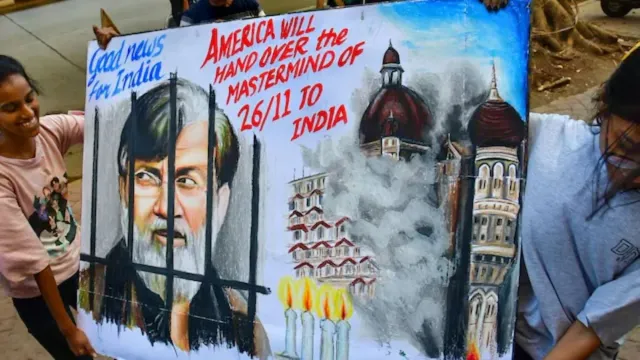- By Nidhi Giri
- Fri, 07 Mar 2025 09:02 AM (IST)
- Source:JND
Tahawwur Rana, a key accused in the 2008 Mumbai terror attacks, is a step closer to being extradited to India after the Supreme Court of the United States on Thursday, March 6, rejected his "emergency application". Tahawwur Rana’s attorney has now appealed directly to US Chief Justice John Roberts. In his appeal, Rana contended that he faces grave risks to his life if sent to India, arguing that he would not survive long enough to stand trial due to multiple factors, including alleged threats to his safety. He emphasized the urgency of his plea, stating, "If a stay is not entered, there will be no review at all, and the petitioner will soon be dead." According to the US Supreme Court website, Tahawwur Rana's application (24A852) was denied by Justice Kagan.
Rana (64) a Pakistani-origin Canadian citizen, was arrested in the US in 2020 at India's request. Indian authorities seek his extradition for his alleged role in the planning of the 26/11 Mumbai attacks that killed 166 people. Rana has consistently denied the charges, maintaining that he is being unfairly targeted. His legal battle has prolonged over the years, with lower US courts ruling in favor of extradition, prompting him to take the matter to the highest judicial authority in the country.
READ MORE: Chennai Records Hottest Day Of The Year So Far; Dry Weather To Prevail Till March 10 | IMD Forecast
In his petition, Rana cited several reasons why he believes extradition would be tantamount to a death sentence. He stated that his identity as a Muslim, his Pakistani origin, his past service in the Pakistani Army, and his alleged connection to the Mumbai attacks make him a high-risk detainee in India. He further pointed to his chronic health conditions, arguing that the combination of these factors significantly increases the likelihood of torture, which he claims could ultimately lead to his death.
To support his claims, Rana referenced the 2023 Human Rights Watch World Report, which documents what it describes as the systematic discrimination and stigmatization of religious minorities in India under the BJP-led government. He argued that the political climate in India is becoming increasingly autocratic, making it even more likely that he would be subjected to mistreatment in custody. His petition asserts that India has a troubling record when it comes to the treatment of prisoners, particularly those accused in terror-related cases.
READ MORE: Elon Musk’s SpaceX Starship Blows Up Over Bahamas Mins After Lift-Off From Texas | Watch
The case has also gained political attention. During a joint press conference at the White House with Indian Prime Minister Narendra Modi, former US President Donald Trump had announced the decision to extradite Rana, signaling a broader effort to strengthen cooperation between the two nations in tackling cross-border terrorism. "We are giving a very violent man (Tahawwur Rana) back to India immediately. There is more to follow because we have quite a few requests. We work with India on crime, and we want to make things better for India," Trump had stated.

